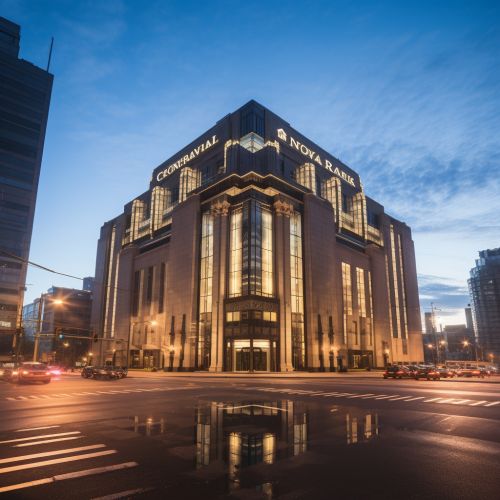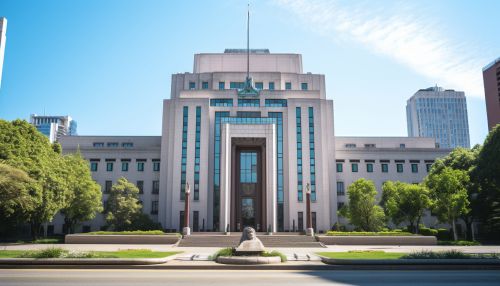Monetary Policy
Overview
Monetary policy refers to the actions undertaken by a nation's central bank to control money supply and achieve goals that promote sustainable economic growth. Central banks use monetary policy to stabilize the economy by controlling inflation and deflation, managing the exchange rate, and maintaining financial system stability.
Objectives of Monetary Policy
The primary objective of monetary policy is to manage inflation. The central bank has the ability to influence inflation by controlling the money supply. Other objectives include economic growth, exchange rate stability, and unemployment reduction.
Types of Monetary Policy
There are two main types of monetary policy: expansionary and contractionary. Expansionary monetary policy is used to combat unemployment in a recession by lowering interest rates, while contractionary monetary policy involves raising interest rates to combat inflation.
Tools of Monetary Policy
Central banks have several tools to implement monetary policy. These include open market operations, discount rate, and reserve requirements. Open market operations involve the buying and selling of government securities. The discount rate is the interest rate charged to commercial banks for loans, and reserve requirements are the amount of funds that a bank holds in reserve against specified deposit liabilities.
Monetary Policy and Fiscal Policy
Monetary policy is often considered in tandem with fiscal policy, which refers to taxation and government spending. While both policies can achieve similar goals, they work in different ways and are enacted by different parts of the government.


Monetary Policy in Practice
In practice, monetary policy can be a balancing act. Central banks must carefully monitor the economy and make adjustments to their policies as needed. This often involves a trade-off between inflation and unemployment.
Criticisms of Monetary Policy
Despite its widespread use, monetary policy has been subject to various criticisms. Some argue that it can lead to economic instability, while others believe it can create long-term economic problems if not properly managed.
